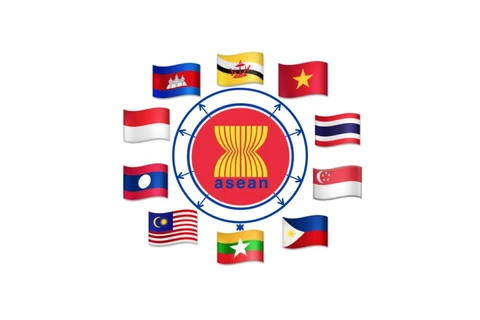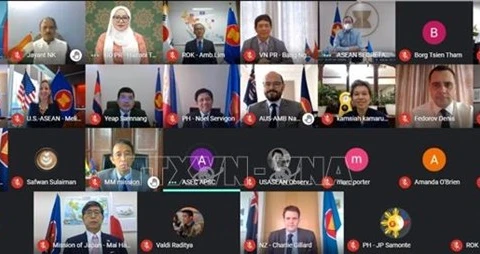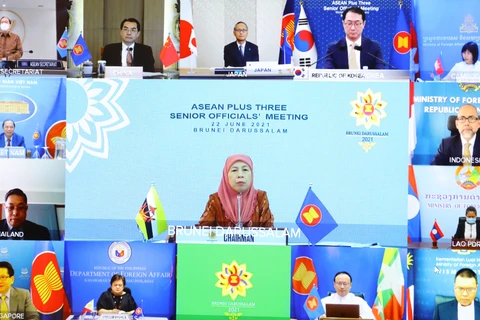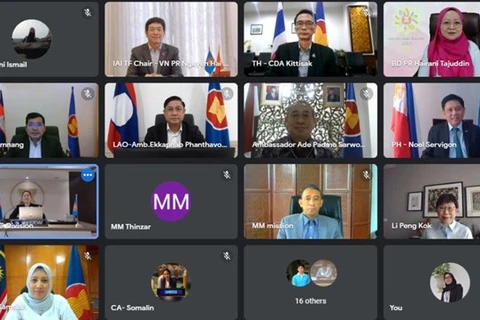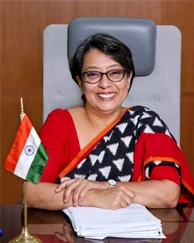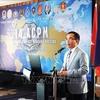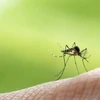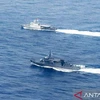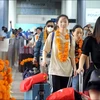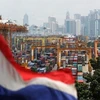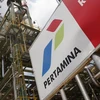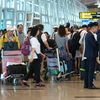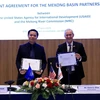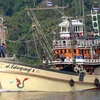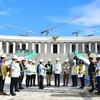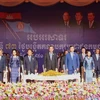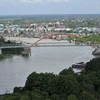 Deputy Minister of Foreign Affairs Nguyen Quoc Dung at the teleconferenced EAS Senior Officials' Meeting on June 24 (Photo: VNA)
Deputy Minister of Foreign Affairs Nguyen Quoc Dung at the teleconferenced EAS Senior Officials' Meeting on June 24 (Photo: VNA) The meeting gathered officials of the 10 ASEAN countries and the EAS partners of China, Japan, the Republic of Korea, Russia, the US, India, Australia, and New Zealand.
They recognised the progress in the EAS cooperation in the recent past despite challenges caused by the COVID-19 pandemic, especially in the implementation of the Manila Plan of Action to Advance the Phnom Penh Declaration on the EAS Development Initiative (2018 - 2022).
Applauding the outcomes of the 15th EAS in 2020, they emphasised the need for coordination to actively realise the outcomes and joint statements of this summit, including the Hanoi Declaration on the 15th Anniversary of the EAS, and further enhance the EAS’s role and strategic value in the new development period.
The participating countries agreed to maintain the current EAS cooperation trend, invest resources in implementing the Manila Plan of Action for 2018 - 2022, and prepare to build a plan of action for the next period on the basis of the priorities matching the new context.
In the face of the complex COVID-19 situation in the region, the partner countries pledged to give high priority to assisting the ASEAN nations to improve the preventive medicine, develop vaccines, and ensure the safe, effective, and even distribution of vaccines.
The ASEAN countries asked the partners to support the bloc’s COVID-19 response initiatives such as the ASEAN COVID-19 response fund, the Regional Reserve of Medical Supplies for Public Health Emergencies, and the ASEAN Comprehensive Recovery Framework.
At the meeting, participants agreed to maintain economic connectivity and regional and global supply chains, promote recovery and green growth, work towards sustainable development, apply innovative achievements, and boost cooperation in such new areas as digital economy, e-commerce, and renewable energy.
They concurred in working together to prepare for the EAS Foreign Ministers’ Meeting this August and the 16th EAS in late 2021.
Talking about the emerging challenges and latent risks to regional peace, security, and stability, including the Korean Peninsula, East Sea, and Myanmar issues, officials affirmed that continuing to guarantee peace, security, and stability is the common benefit, particularly amid the fact that countries are applying themselves to coping with the pandemic and boosting recovery.
The EAS needs to further bring into play its important role and actively contribute to these efforts, they noted.
Regarding the East Sea, an arterial shipping route of the world, the countries stressed the necessity for coordination to ensure peace, stability, security, and safety of navigation and overflight, and to turn this body of water into an area of peace, friendship and cooperation.
They called on the relevant parties to refrain from any action that escalates tensions or complicates the situation; not to conduct militarisation or use and threat to use force; and resolve disputes by peaceful means on the basis of international law, including the 1982 United Nations Convention on the Law of the Sea (UNCLOS).
They also appealed to ASEAN and China to fully and effectively carry out the Declaration on the Conduct of Parties in the East Sea (DOC) and build an efficient and effective Code of Conduct (COC) in the waters in line with international law, including the 1982 UNCLOS.
Officials also lauded the outcomes of the ASEAN Leaders’ Meeting on April 24 this year, affirming the support for the bloc’s role in promoting dialogue and reconciliation in Myanmar and helping this country seek solutions to stabilise the situation.
Addressing the event, Deputy Foreign Minister Nguyen Quoc Dung asked the countries to continue highly prioritising coordination to help mitigate COVID-19 impacts, protect people’s health, and recover the regional economy while assisting efforts to narrow the development gap and ensure even and sustainable development in the region, especially the Mekong sub-region.
He reiterated ASEAN’s viewpoint on the East Sea issue, urging the parties concerned to enhance efforts to boost dialogue and cooperation, build trust, effectively deal with emerging issues, improve their sense of responsibility, and uphold the rules-based approach in countries’ relations.
He also called on them to respect law, exercise self-restraint, not take action complicating the situation, not conduct militarisation, peacefully settle disputes, keep fully and effectively implementing the DOC, and exert efforts to overcome pandemic-caused difficulties to soon finalise an efficient and effective COC that accords with international law and the 1982 UNCLOS, thereby helping to maintain peace, security, and stability in the East Sea and the region./.
VNA

